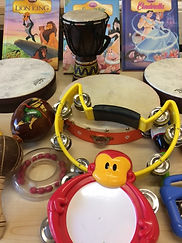

Violet
PLAY THERAPY CAMBRIDGESHIRE
SADIYE AKALIN
Play Therapist/Creative Arts Counsellor /Supervisor

Contact Us: 07565 132317

'Empathy is a defining feature of human relationships. Empathy stops you doing things that would hurt another person's feelings. Empathy also stops you inflicting pain on a person or animal. Empathy allows you to tune into someone else's world, setting aside your own world-your perception, knowledge, assumptions or feelings. ''
-Baron-Cohen and Chakrabarti
WHAT IS PLAY THERAPY?
I believe that play is at the heart of children’s and adolescents’ development—socially, emotionally, and physically. Through play, young people naturally build relationships, form friendships, and develop essential social skills. Their creativity and imagination thrive, and they become more engaged in learning. Role play, in particular, helps them to empathise with others and begin to make sense of the world around them.
In my practice, I use play therapy to create a safe, supportive space where children and adolescents can explore and express their emotions. It helps them to better understand what they’re feeling and to manage those emotions in healthy, constructive ways.
Donald Winnicott (1896–1971) described play as a bridge between a child and their caregiver—a space where secure attachments can grow. Unfortunately, not all children and adolescents experience secure relationships with their parents or caregivers, often due to difficult or traumatic life circumstances. Play therapy offers an opportunity to repair those early emotional wounds. Through a trusting therapeutic relationship, I help young people begin to rebuild a sense of connection and safety.
Play therapy supports children and adolescents with a wide range of challenges. These may include attachment difficulties, anger, anxiety, experiences of abuse or neglect, low self-esteem, and more. (A full list of areas I work with can be found in the Services section.)
Through our work together, young people develop new coping strategies, strengthen their problem-solving abilities, and expand their emotional understanding. Most importantly, play therapy gives them dedicated time where they feel truly seen and accepted. It helps them understand that their feelings are valid—and supports them in processing emotions that may be impacting their everyday lives.


